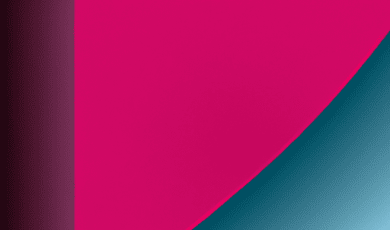
Certified French Translation Services for Product and Packaging Designers: Enhancing User Experience Across Borders
Introduction
In today’s fast-paced and globally connected world, product and packaging designers cannot afford to overlook the importance of language in the user experience (UX). For designers seeking to reach French-speaking markets—whether in France, Canada, or Africa—the necessity of clear, precise, and culturally relevant communication is undeniable. This is where certified French translation services become a game-changer, bridging the gap between innovative design and diverse, multilingual audiences.
At Design-Battle.com, we prioritize comprehensive resources for UX professionals, addressing ethical design practices, internationalization challenges, and practical strategies for engaging users worldwide. In this post, we explore how certified French translation elevates the value of product and packaging design, supports compliance, reduces risks, and enhances a brand’s reputation in the French-speaking market.
The Critical Role of Language in UX Design
User experience is about more than visual appeal; it encompasses every aspect of a user’s interaction with a product—including their comprehension of its purpose, usage instructions, and brand messaging. For product and packaging designers, tailoring written content to the target audience’s language is not simply about translation, but about accurate localization that takes cultural and legal differences into account. In French-speaking markets, even minor linguistic errors can lead to misunderstandings, regulatory non-compliance, or negative perceptions.
Why French? A Market With Immense Opportunity
French is spoken by over 300 million people worldwide and is one of the top ten most influential languages for business and commerce. The French market, in particular, is known for its stringent consumer protection laws—especially when it comes to product packaging and labeling. Failing to provide accurate French-language information can have significant legal and commercial consequences, including fines, product recalls, and damage to brand credibility.
That’s why leading companies invest in professional, certified French translation services to guarantee that every word on their packaging meets the highest standards of accuracy and compliance.
Certified French Translation Services: Setting the Standard
So what sets certified French translation apart from generic translation tools or standard freelance translation? Certification means translations are carried out by qualified professionals who are accredited and have a deep understanding of specialized vocabulary, regional differences, and local laws. For designers, this level of expertise provides several key benefits:
- Regulatory Compliance: Certified translations ensure that product information, safety warnings, nutritional details, and usage instructions conform to the strict regulatory frameworks of French-speaking regions. This protects brands from costly legal complications.
- Cultural Localization: Certified professionals do more than translate words—they adapt tone, idioms, and messaging to resonate with local audiences. This makes packaging visually and linguistically appealing, reducing risk of consumer confusion or offense.
- Brand Consistency: Every brand’s voice is unique. Certified translators are trained to maintain brand tone while adjusting messaging for cultural nuances—supporting a consistent, recognizable identity across the globe.
- Risk Reduction: Certified translations reduce the risk of ambiguous or misleading information—crucial in sectors like food, cosmetics, or pharmaceuticals, where misunderstanding can have serious consequences.
- Market Expansion: Quality, certified translations enable brands to access and thrive in French-speaking markets—leading to increased revenue, brand loyalty, and international recognition.
If you’re developing global product packaging, leveraging certified French translation services is essential not just for accuracy, but for building lasting relationships with local consumers.
Overcoming the Challenges of French Translation
Translating for French markets isn’t as simple as swapping words from English to French. Designers and translators face numerous hurdles—including complex grammar, gendered language forms, idiomatic expressions, and legal terminology. According to linguists, French is considered a complex language to translate due to its nuanced structure and rich vocabulary.
For example, French packaging regulations might require precise wording for allergy information, ingredient lists, or recycling instructions—each with legal implications. Automated translation tools or non-certified translators may introduce errors, mistranslations, or omit critical details, risking non-compliance and consumer distrust.
That’s why certified services are invaluable for designers. Teams of qualified linguists and subject matter experts collaborate on each project, ensuring rigorous quality control and industry-specific expertise.
Practical Example: Packaging Label Localization
Imagine launching a new line of skincare products in Canada. The product must include both English and French labeling, as required by Canadian law. A literal translation of “sensitive skin relief” could yield something awkward or misleading in French. A certified translator, however, would ensure the phrase is not only accurate but also culturally relevant, using, for instance, “soulagement pour peau sensible”—a common, consumer-friendly term in the target market.
The same principle applies to instructions, promotional text, and even recycling icons—which may be governed by regional standards. The right translation partner ensures that nothing is lost in translation and that your product stands out on the shelf for the right reasons.
How to Choose the Right Certified French Translation Service
With numerous options available, designers and brands should weigh several factors when selecting a translation provider. Key considerations include:
- Accreditation and Reputation: Ensure that the service is certified by a recognized authority (e.g., ATA, NAATI) and has a track record of successful localization for product and packaging design.
- Expertise in Your Industry: Your chosen service should have experience translating for your specific product category—be it food and beverage, cosmetics, electronics, or apparel.
- Collaborative Process: Look for teams that involve both native linguists and subject matter experts, offering you the ability to review and approve final translations before launch.
- Scalability and Speed: For large product lines, the provider should offer fast turnaround without compromising quality—ensuring you meet market deadlines and regulatory requirements.
- Data Security: Confidential handling of your product information and branding assets is vital.
Interested in learning more? Explore certified translation solutions through trusted French language experts.
Design, Translation, and Ethical User Experience
Ethical considerations are at the heart of great design and user experience. Providing accurate, clear information in the user’s own language is a matter of respect and responsibility. Mistranslation can not only frustrate users but also compromise their safety—especially for products with health, allergen, or safety concerns.
Designers committed to ethical UX should view certified translation as a tool for inclusivity and accessibility—essential for creating a positive emotional experience and fostering trust with local communities. This approach is aligned with the broader trends in international UX, where personalization and cultural sensitivity drive customer satisfaction and loyalty.
Conclusion
As product and packaging designers expand into French-speaking markets, language becomes a defining factor for success. Certified French translation services provide the accuracy, cultural relevance, and compliance required to meet user expectations and regulatory demands. By investing in certified translation, brands not only avoid legal pitfalls but also create engaging, ethical, and memorable user experiences.
In a world where first impressions matter and global competition is fierce, the quality of your French-language messaging could be the difference between a product that thrives and one that misses the mark.
Ready to elevate your next design project? Stay informed with the latest in UX and design ethics at Design-Battle.com, and discover the power of partnering with leading certified French translation services for flawless international launches.








